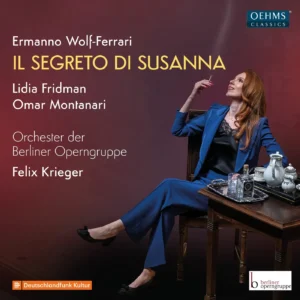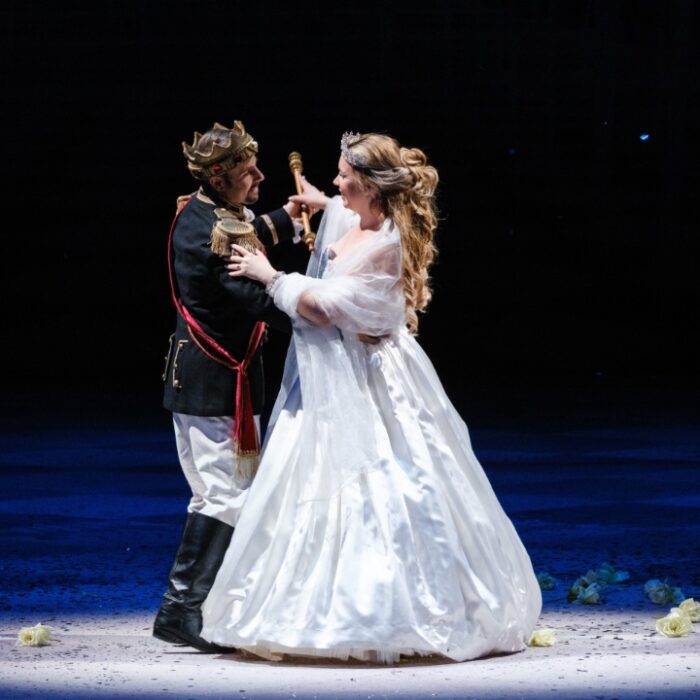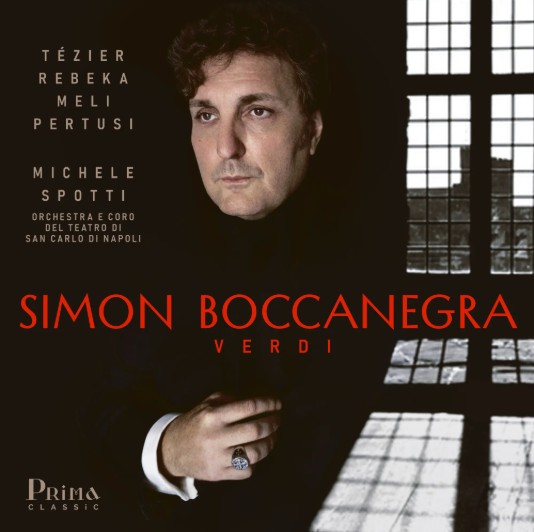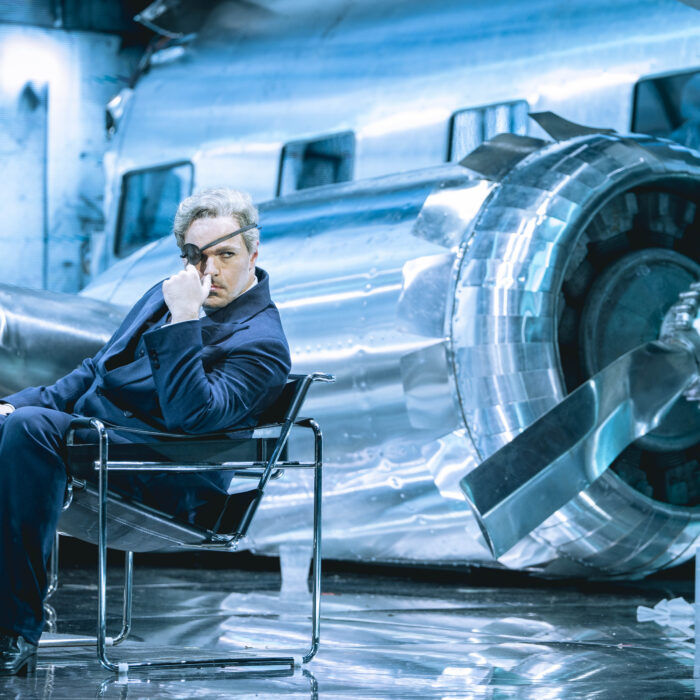
CD Review: Oehms Classics’ ‘Il Segreto di Susanna’
By Bob Dieschburg“Il Segreto di Susanna” is an operatic gem; and, in addition, stands as the only composition by Ermanno Wolf-Ferrari to boast some kind of posterity, however tepid. An opera intermezzo, it takes up the legacy of Pergolesi’s comic “La Serva Padrona,” but at the same time discourses with near-contemporary one-act pieces from the Giovane Scuola. Its musical facture notably sits at the border with German orchestral writing, adopting Wagner’s innovations of through-composition while retaining a rather Puccinian style of vocal expanse.
In short, “Susanna’s Secret” – with a libretto by the Neapolitan Golisciani – feels like a pre-avant garde melting pot of varying traditions. This eclecticism results in a naively contrived modernity which, for a chamber opera, is of near-perfect homogeneity and appeal.
Germanic Sonorities
Unfortunately, performing practice usually requires loads of spontaneity and an extra bit of nonchalance from everyone involved, that is really only the two protagonists and the orchestra. Felix Krieger, for Oehms Classics, strangely appears to have too serious an approach. In combination with the Konzerthaus’ very spacious acoustics, the conductor and the otherwise irreproachable orchestra of the Berliner Operngruppe opt for a slightly pastose, if not inflexible sound. It gives preferential treatment to the Germanic sonorities: its quasi-symphonic texture (despite the small orchestra), and the derivative ideal of endless melody. After all, the Austrian Felix Mottl reportedly observed that “strange as it may seem, this [‘Susanna’] is the most Wagnerian opera I know.”
Conversely, Krieger neglects the subtle tints of humor ever so perspicaciously embedded into the 45-minute score. For instance, he does not capitalize on the soft irony of Wolf-Ferrari’s quotation from Debussy’s “Prélude à l’après-midi d’un faune;” nor does he show comparable verve to John Pritchard’s strikingly malleable interpretation from 1980. From the very outset, for instance, Pritchard equates “Susanna’s” use of deftly syncopated brass and strings with the rapid succession of fleeting emotions.
Felix Krieger chooses not to. He does not set strong accents, and the orchestration’s charming wryness, much like the buffo parts, is barely more than half-colored sketches. The swirling oboe, for example, lacks its psychologizing factor every time Susanna relishes her cigarettes. Instead, the music seems de-dramatized – rather unjustifiably so.
Vocal Tastes
This conservatism of sorts naturally dampens the range of expressivity. A quick reminder: Susanna’s secret or “vizietto profumato” is nothing other than a privately harbored taste for cigarettes which she joyfully smokes as soon as her husband, the irate Gil, leaves the house. The lingering smoke leads the latter to doubt her fidelity until the quiproquo resolves, and apologetically they light a cigarette together.
Lidia Fridman gives an endearing interpretation of Susanna; so does Omar Montanari in the role of Le Comte Gil. Their merits are timbral beauty, and a proverbial freshness to each voice respectively. Yet while Montanari’s slenderly shaped baritone seems especially adapted to 19th century bel canto parts, and is apt to move quickly when needed, I am under the impression that the jealous outbreaks of Gil (“Ah! Scellerata!”) are not quite to his vocal taste. They do not display the snarly heft of veteran performers the like of Bruson; but once Gil learns Susanna’s secret (“Tu fumavi?”) Montanari strikes infinitely tender chords that unequivocally predispose him to more tempered roles.
Fridman’s soprano has a dramatic edge that suits her character’s witful personality, particularly when combined with broad phrasing as in the purportedly supplicant “Via! Così non mi lasciate!” Its broad strokes of melody are vaguely Puccinian, and one has no issue picturing her as a future Manon Lescaut. Yet again – and the complaint may rightfully seem unfair – the very shortness of Wolf-Ferrari’s chamber opera demands a level of interpretive concision, if not introspection, which only experience can reasonably be expected to achieve.
Oehms Classics proposes a positively unsophisticated rendition of an operatic renegade. It sketches out a dramatic constellation that is superficially valid; but becomes a theatrical delight only in the inquisitive phrasing, and histrionics, of the Italian greats. The recording with Scotto and Bruson, under John Pritchard, inevitably remains the go-to.


